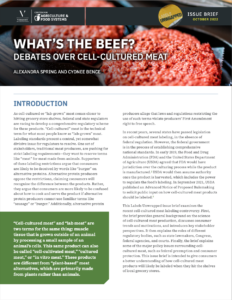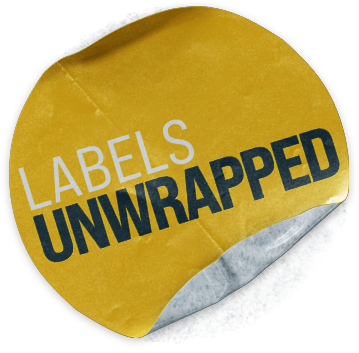About the Project
The Labels Unwrapped project was launched to address the frustration and confusion caused by food labels. Laws and regulations that govern the labelling of food products are complex and, in some instances, ambiguous. Because everyone eats food every day, the creators of this site wanted to unwrap the law behind the labels on various types of food products and provide an accessible informational resource for anyone who wants to better understand the language and imagery that can both inform and confuse consumers.
While the Food and Drug Administration (FDA) has developed a resource intended to assist producers with compliance (see A Food Labeling Guide: Guidance for the Industry), the guide is intended for that audience. In turn, it is highly technical and doesn’t fully serve the needs of consumers and other audiences trying to make sense of food product labels. This site fills that gap by providing an easy-to-navigate and user-friendly resource to serve consumers, producers, and others working in the food label area.
Acknowledgments
This website was created with the combined time and talents of many people. In particular, we would like to recognize:
Laurie Beyranevand, Professor of Law and Director of the Center for Agriculture and Food Systems (CAFS), Cydnee Bence, LLM Fellow at CAFS, Lihlani Nelson, Associate Director at CAFS, Mackenzie Battle, Summer Honors Intern at CAFS ’20, Johanna Doren, MFALP’20, and Emily Whittier, MFALP’20.
Andrea DiMattina for designing the graphics and Gabe Halberg at Dadra Design for web design & development.
This report was made possible with support from the USDA National Agricultural Library.
About CAFS
Vermont Law School’s Center for Agriculture and Food Systems (CAFS) uses law and policy to build a more sustainable and just food system. In partnership with local, regional, national, and international partners, CAFS addresses food system challenges related to food justice, food security, farmland access, animal welfare, worker protections, the environment, and public health, among others. CAFS works closely with its partners to provide legal services that respond to their needs and develop resources that empower the communities they serve. Through CAFS’ Food and Agriculture Clinic and Research Assistant program, students work directly on projects alongside partners nationwide, engaging in innovative work that spans the food system. Visit www.vermontlaw.edu/cafs to learn more.

